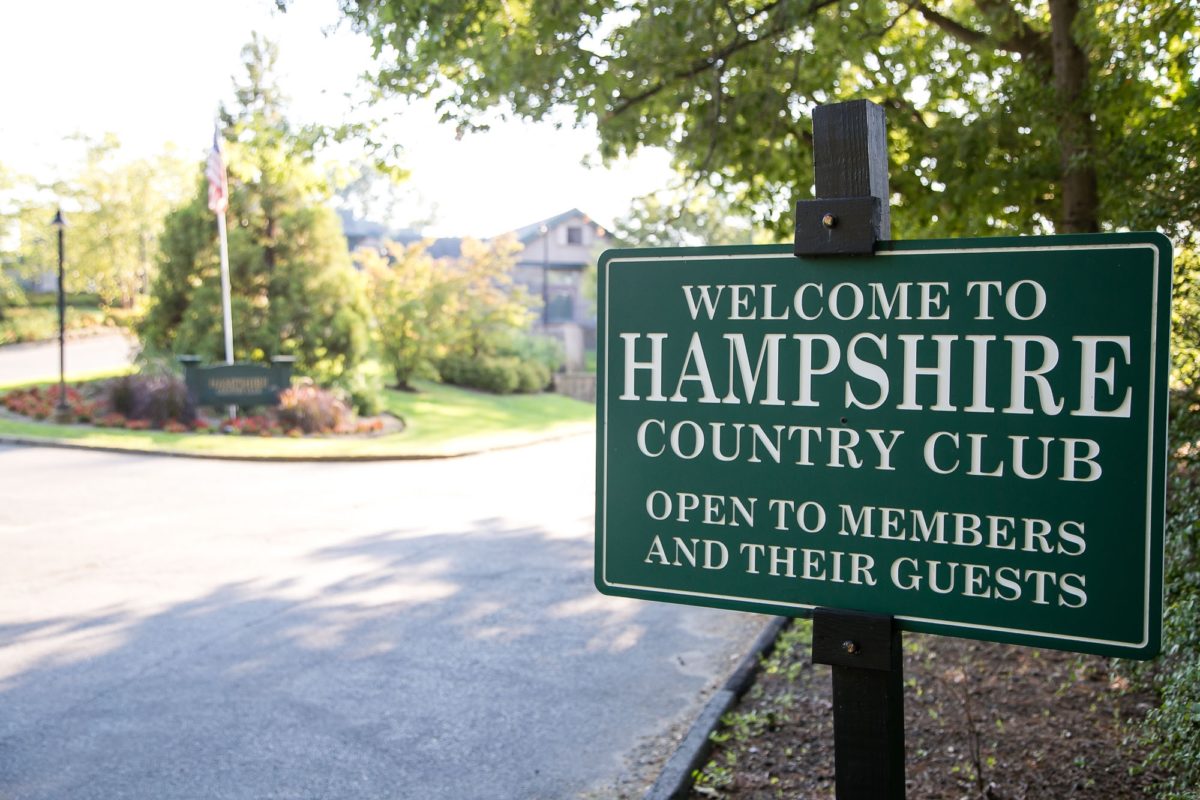Hampshire Recreation sues Mamaroneck for $58M over land use denials
Hampshire Recreation LLC, which claims that its proposed housing development in Mamaroneck would generate $5.2 million in tax revenues, has sued the village for more than 11 times as much, $58 million, for rejecting the project.
 Hampshire petitioned Westchester Supreme Court on June 8 to annul and reverse the village planning board”™s denial of land use approvals needed to build homes on a portion of Hampshire Country Club.
Hampshire petitioned Westchester Supreme Court on June 8 to annul and reverse the village planning board”™s denial of land use approvals needed to build homes on a portion of Hampshire Country Club.
“The six bases for denying the project were merely ”¦ rationalizations for a predetermined negative result that the planning board had committed itself to long before issuing (its) findings,” the petition states. “This action is the culmination of a decade-long attempt by the village to prevent any residential development at the club property.”
Celia Felsher, who lives near the country club and who founded the Mamaroneck Coastal Environmental Coalition to oppose the project, issued a press release that describes the lawsuit as frivolous.
She said the planning board made a reasoned determination after five years of detailed analysis “that the project would have many significant adverse impacts on the village.”
The country club is in the wealthy Orienta section of the village on the Long Island Sound. Hampshire bought the 106-acre property in 2010 for $12 million.
Originally, the developer wanted to build a five-story, 125-unit condominium building. After the village rejected a proposed rezoning, the plan shifted to a project with 44 houses and 61 carriage homes. The golf course would be downsized to 9 holes from 18, and 31 acres would be set aside as open space for public use.
After nearly five years of environmental studies, hearings and deliberations, the planning board on May 6 denied the land use permits.
“The proposal would result in significant unmitigated environmental impacts,” according to the board”™s 75-page State Environmental Quality Review Act findings statement. “It is inconsistent with the goals of the village”™s planned residential development zoning and it is inconsistent with the village”™s flood damage prevention laws.”
Hampshire Recreation claims that the evidence does not support the planning board”™s conclusions. It accuses the board and the village of arbitrary and capricious conduct, “bad faith post-hoc rationalizations to justify a rejection of Hampshire”™s applications,” and illegal bias.
The bias allegation is based in part on an Aug. 10, 2019 email that Cynthia Goldstein, a member of the planning board, sent to two board members.
“And I think it”™s past time to wrestle control of this from the consultant” ”“ purportedly a reference to the board”™s planning and engineering expert ”“ because “he has been agreeing to things with the applicant that we don”™t know about or agree with.”
The email exhibit comes from a village board of ethics report on Goldstein that recommends removal from the planning board for alleged conflicts of interest concerning Hampshire and another project. The issue is pending before Mayor Thomas Murphy.
Hampshire Recreation argues that the planning board”™s actions constitute a taking of property, for which it must be compensated if the denials of land use approvals are not reversed. The petition does not put a price on the damages, but Hampshire notified the village that it would seek “no less than $58 million,” according to a press release issued by the developer.
Felsher depicted the lawsuit as a bullying tactic. Now the village must defend itself from Hampshire”™s “attempt to force action,” she stated, “that”™s adverse to the interests of residents.”
Hampshire Recreation is represented by White Plains attorneys David J. Cooper and Matthew J. Acocella, of Zarin & Steinmetz.